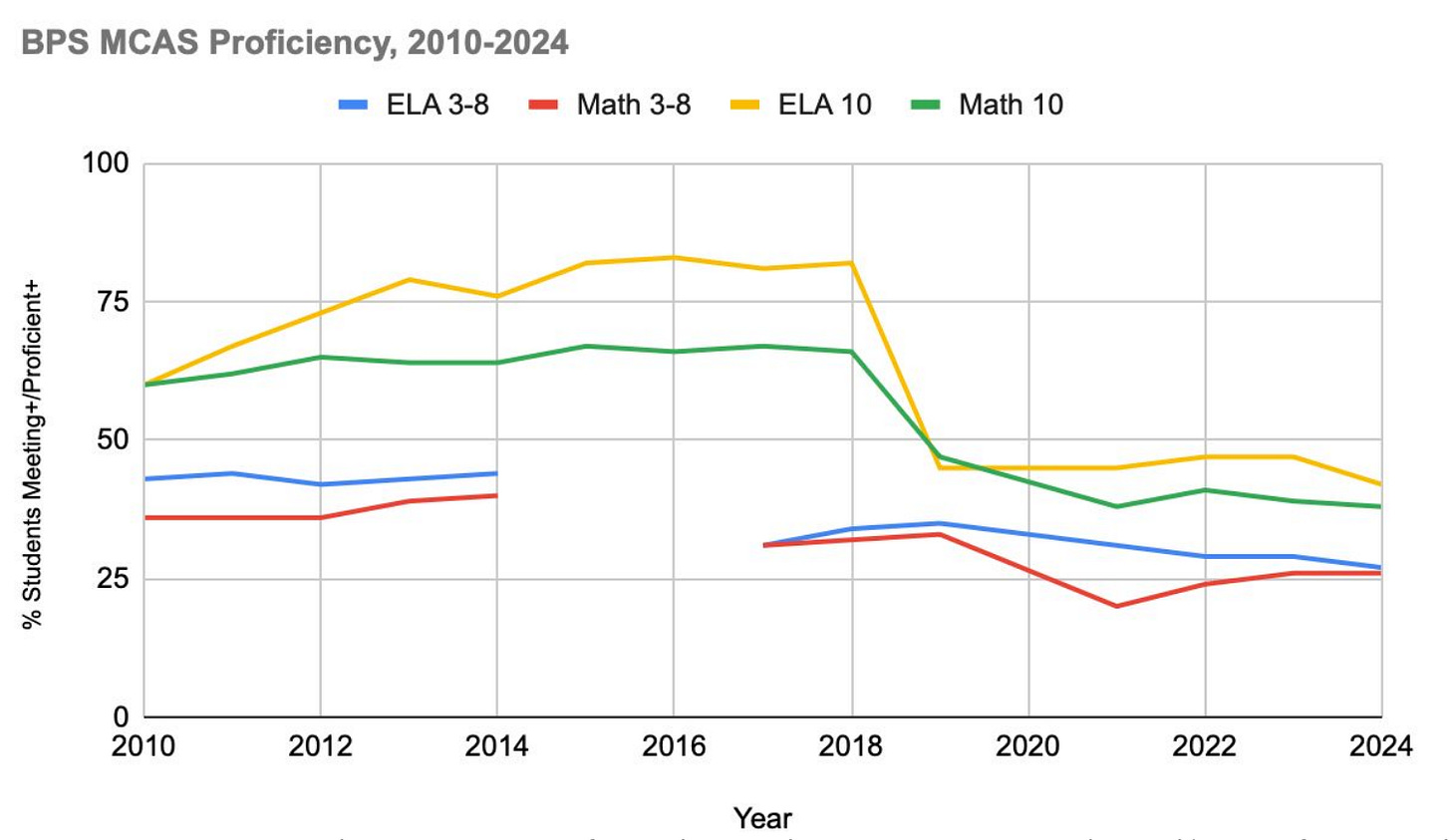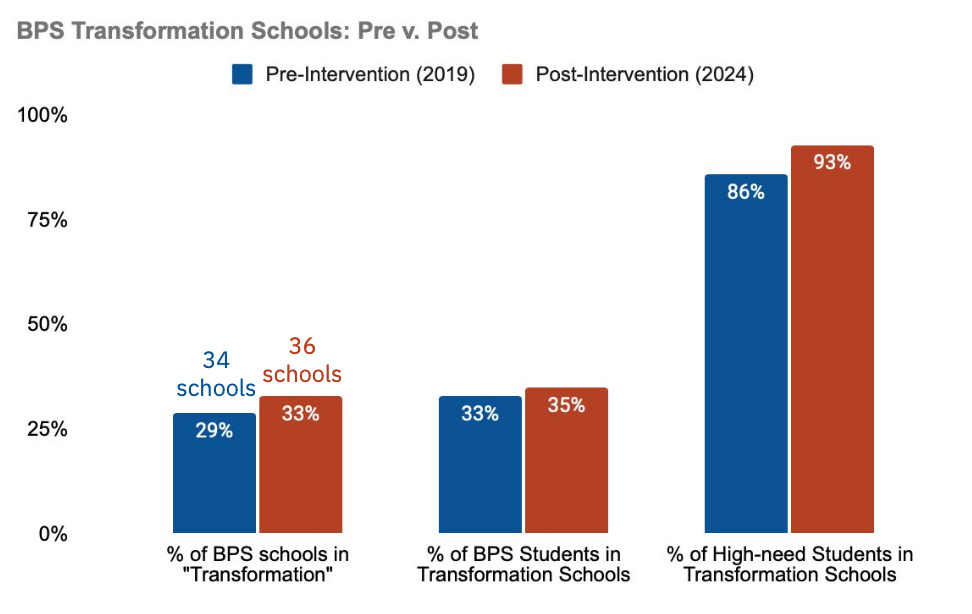Heading into last night’s State of the City address from Boston Mayor Michelle Wu, BPI was watching for two sets of issues:
4 policy issues - right direction/wrong track, public transportation, Boston Public Schools (BPS), & Bike Lanes - that both BPI & a recent poll from Emerson surveyed Boston residents on - read BPI’s analysis of the two polls;
4 recent reports - BPI’s falling office values report, Secretary Galvin’s Election Commission report, HUD’s Boston Housing Authority Audit, & BPI’s BPS-DESE report - that highlighted mismanagement in City Hall - read BPI’s X & BlueSky threads on the reports.
Out of of all those issues, only Boston’s falling office values and BPS were mentioned in the SOTC, and neither issue was accompanied by an announcement of major action. In the case of BPS, Mayor Wu did not use the “four years ago” device she did on other issues. That is because the district is performing worse today than it was 4 years ago. Keep reading for BPI’s case using evidence gathered in our recent report.
On falling office values, there were two pieces of news in the speech:
The first was that Boston was launching a “Business Recruitment Office to fill commercial vacancies, retain and attract talent, and continue revitalizing Downtown.” The Mayor said this proposal built on work done by two organizations that a google search yields no results for, the “Business Recruitment Task Force” and the “Boston Employer Working Group.”
The second is that City Hall is expanding the office to residential conversion program to “universities and employers looking to reactivate office buildings as dorms or workforce housing.” There were no details on how this expansion would work. Reporting earlier this year from Banker & Tradesman on the City’s existing office-to-residential conversion found that just 2 of the 14 projects had obtained financing. Mayor Wu did not announce any new policy to bridge that gap last night.
Boston Public Schools got the most focus of any policy issue last night, mostly in form of anecdotes and announcements of new programs for small numbers of students. There were two paragraphs were Mayor Wu substantively engaged on how BPS and its students were performing, on an issue that BPI recently released an in-depth report.
The video is about 45 seconds long and the quote from WBUR’s copy of the speech is below it:
And in the city that created public education, we must set the standard for others to meet. We aren’t there yet, but today, our public schools are on the right track and steadily building momentum: BPS enrollment is growing for the first time in ten years. Graduation rates are up, chronic absenteeism is down, and our state accountability results show meaningful progress. And we’re making the hard but necessary decisions to right-size our district and best serve our students.
This school year, for the first time ever, families can track students’ bus rides, and BPS finally has data on which students are riding on which days. Today we're averaging 94% of buses arriving on time, and will take more steps to improve routing this year.
The picture that Mayor Wu painted of BPS in her speech is incomplete - here is additional context from BPI’s report:
BPS enrollment growth declined 15% or 8,800 students over the last 10 years, and the recent surge in immigrant families is not expected to survive President Trump’s new immigration policy:
Here is enrollment over a longer period of time from Boston Indicators, the same data that BPI used in the above chart:

While BPS graduation rates are up, the number of students going on to higher and further education is down:

Chronic Absenteeism is down from its immediate post-COVID-era highs, but is still much higher than pre-COVID:

BPS students’ declining academic performance, which brought on state intervention before COVID, has not improved even to those pre-COVID levels:

While the Mayor claims to be making “hard but necessary decisions to right-size our district,” the district has not produced a long-term facilities plan acceptable to the state:

The “right-size” discussion also elides the fact that more students than ever are in BPS schools that rank in the bottom 10% of schools state-wide:

The state agreement requires that BPS “Achieve 95%+ on-time arrival rates each month,” so Mayor Wu’s claim can’t be immediately evaluated - here is BPI’s findings on on-time buses:

Finally, unmentioned in the SOTC is that the current agreement between the state and BPS ends this coming June. BPI’s report recommends that a 3rd agreement between BPS and the state be struck that focuses on the need for improving access to data and improving students’ academic performance:

Boston Policy Institute, Inc is working to improve the public conversation - help us by following BPI on YouTube, TikTok, Facebook, Instagram, Threads, Twitter, and LinkedIn.






Appreciate the summary and call outs. With declining BPS enrollment I am interested in how much the electorate cares about . . . BPS. Not sure whether "the electorate" are the 245,000 voters in the 2024 Presidential election rather than the 140,000 in a typical mayoral race.